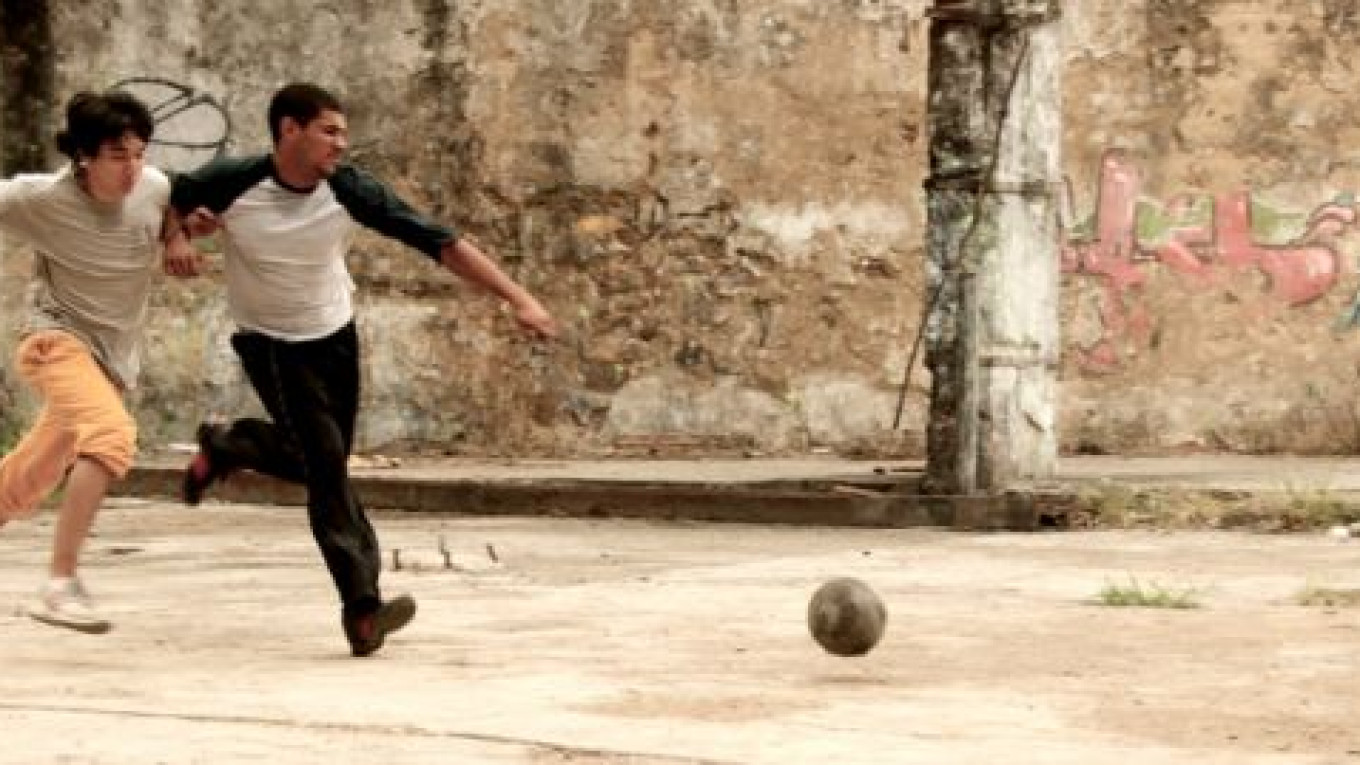A Venezuelan film about two brothers who play football took the top prize at the Moscow Film Festival, which finished with a grand ceremony at the Pushkin cinema.
Director Marcel Raquin accepted the prize for best film, the Golden George, for “Brother” from jury head Luc Besson at the closing ceremony Saturday, which was preceded by the usual meet and greet by festival head Nikita Mikhalkov on the red carpet outside the cinema in the sweltering heat that has gripped the capital.
Raquin’s film set in the slums of Caracas tells of two brothers and their tryout for a chance to go professional.
The special jury prize went to Johannes Naber’s “The Albanian,” a German-Albanian production about a migrant who goes from Albania to Germany to earn enough money to marry, with its star Nik Xhelilaj also winning best male actor.
Otherwise, the awards reflected the main trend in this year’s competition with directors from Eastern Europe looking at the recent past, when their countries were under the control of the Soviet Union as part of the Warsaw Pact. Jan Kidawa-Blonski won best director for “Little Rose,” a tale of dissidents and secret police in 1960s Poland, and Vilma Cibulkova won best actress for the Czech film “An Earthly Paradise for the Eyes,” set around the Soviet invasion in 1968.
“If someone had told me 15 or 20 years ago that I would make a film about the Soviet occupation in my own country and get a prize from the Moscow Film Festival, I wouldn’t have believed it,” Cibulkova said. “We are connected by a history, and I hope that in the future we will be connected through history in the best kind of way.”
The Polish film “Reverse,” a very black comedy about secret police in 1950s Poland, won best film in the “Perspectives” portion of the competition devoted to debut movies and also won a prize from international critics.
The two tribute prizes went to French artists, a reflection of the Russia-France year of cultural exchange, with director Claude Lelouch, whose film “What Love May Bring” opened the festival, receiving a special prize for outstanding contribution to world cinema, and actress Emmanuelle Beart receiving the Stanislavsky prize.
Beart’s film, “It Begins With the End,” directed by her husband Michael Cohen and reportedly blocked from the Cannes Film Festival because of its raunchy scenes, competed but went home empty-handed.
A Message from The Moscow Times:
Dear readers,
We are facing unprecedented challenges. Russia's Prosecutor General's Office has designated The Moscow Times as an "undesirable" organization, criminalizing our work and putting our staff at risk of prosecution. This follows our earlier unjust labeling as a "foreign agent."
These actions are direct attempts to silence independent journalism in Russia. The authorities claim our work "discredits the decisions of the Russian leadership." We see things differently: we strive to provide accurate, unbiased reporting on Russia.
We, the journalists of The Moscow Times, refuse to be silenced. But to continue our work, we need your help.
Your support, no matter how small, makes a world of difference. If you can, please support us monthly starting from just $2. It's quick to set up, and every contribution makes a significant impact.
By supporting The Moscow Times, you're defending open, independent journalism in the face of repression. Thank you for standing with us.
Remind me later.


